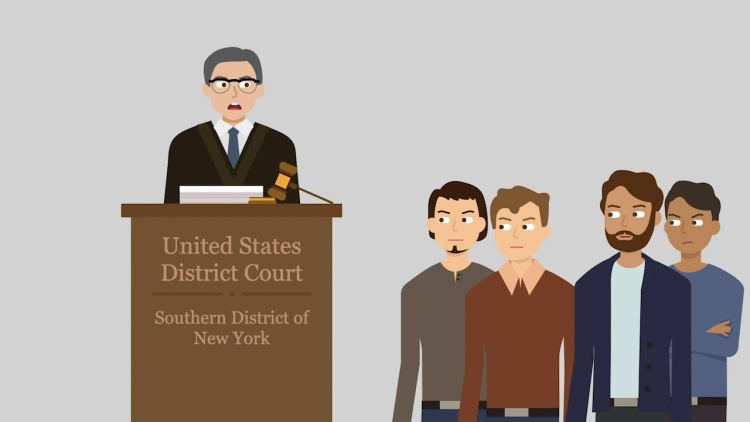Schaffer v. United States
United States Supreme Court
362 U.S. 511, 80 S. Ct. 945, 4 L. Ed. 2d 921 (1960)
- Written by Rose VanHofwegen, JD
Facts
One indictment charged seven people (defendants) with conspiring to transport stolen clothing from New York. All the shipments involved the three Stracuzzas. However, the other defendants were involved in different shipments: the Schafffers in shipments to Pennsylvania, Marco in shipments to West Virginia, and Karp in shipments to Massachusetts. The Stracuzzas pled guilty or had charges dismissed before trial, and the trial court dismissed the conspiracy charge for lack of evidence. As for the remaining defendants, the prosecution (plaintiff) meticulously presented the evidence as to each separately. The defendants requested acquittal at the close of the prosecution’s case without requesting a new trial. The judge denied acquittal and submitted the charges to the jury, carefully instructing the jury not to consider any evidence against one defendant as proof against any other. The jury convicted all four remaining defendants, and they appealed, arguing that the court should not have tried them together after dismissal of the conspiracy count. The appellate court found that no prejudice resulted from trying them together and affirmed the conviction, prompting the defendants to appeal to the United States Supreme Court.
Rule of Law
Issue
Holding and Reasoning (Clark, J.)
Dissent (Douglas, J.)
What to do next…
Here's why 904,000 law students have relied on our case briefs:
- Written by law professors and practitioners, not other law students. 47,100 briefs, keyed to 995 casebooks. Top-notch customer support.
- The right amount of information, includes the facts, issues, rule of law, holding and reasoning, and any concurrences and dissents.
- Access in your classes, works on your mobile and tablet. Massive library of related video lessons and high quality multiple-choice questions.
- Easy to use, uniform format for every case brief. Written in plain English, not in legalese. Our briefs summarize and simplify; they don’t just repeat the court’s language.








